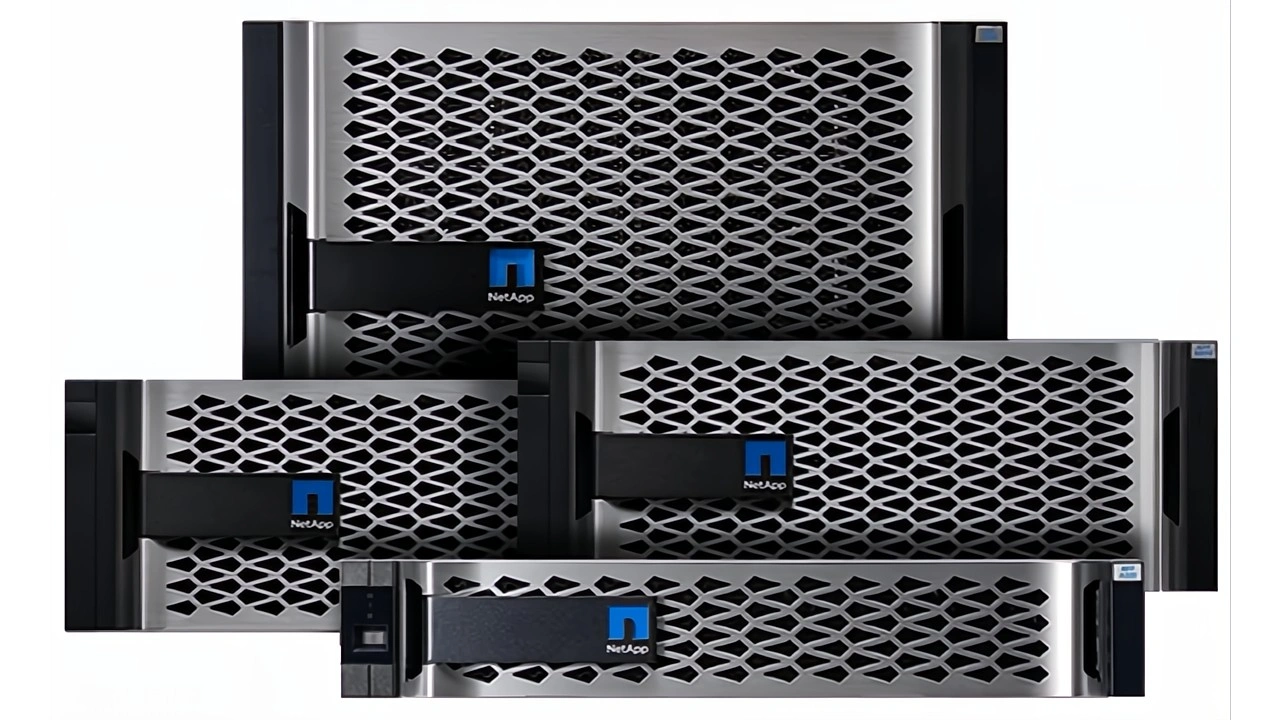New NetApp Storage Offerings Modernize Workloads for Businesses of All Sizes
NetApp, the
intelligent data infrastructure company, announced updates to its portfolio of
enterprise storage offerings including new NetApp AFF A-Series and AFF C-Series
systems with mid-range, all-flash, unified data storage at price points for
businesses of any size and updates to NetApp StorageGRID, driving improved
density and performance for object storage.
Today’s dynamic
enterprises need an intelligent data strategy to address the challenges of
modern data management, such as exponential data growth, multi-cloud
complexity, and the need for AI readiness. Intelligent Data Infrastructure is a
comprehensive framework that empowers organizations to define and implement a
transformative intelligent data strategy that is secure, agile, and
future-ready.
With these new
innovations, customers can now expand their intelligent data infrastructure
using NetApp’s leading data storage systems at more accessible entry points,
making it easier to scale up from a smaller starting point or expand their
capabilities to remote and branch locations. These new systems enable customers
to power the growing scope of critical workloads, such as database applications
and AI, or tap into the efficiency of all-flash storage to manage the growing
volumes of data under their control. By leveraging intelligent data
infrastructure that delivers performance, capacity, and a unified framework,
customers can make their data a strategic asset that enables more informed
decision-making and drives innovation.
NetApp is making
the storage that turbocharges mission-critical workloads available to every
customer by releasing additional models for its AFF A-Series storage systems.
Like the high-end AFF models, the new NetApp AFF A20, A30, and A50 models
deliver advanced capabilities including sub-millisecond latency with up to 2.5X
better performance over their predecessors, guaranteed storage efficiency,
integrated real-time ransomware protection with 99+ percent accuracy, and
improved storage density, all at an affordable price-point.
Customers can build
or expand their intelligent data infrastructure for high-performance workloads
with storage deployments at the scale and price point that works best for them.
For customers who want to start small and grow or build out deployments in
remote or branch locations, the AFF A20 starts at a capacity point as low as
15.35TB. The AFF A30 allows customers to start small but scale to over 1PB of
raw storage. And the AFF A50 delivers two times the performance of its predecessor
in a third of the rack space to power commercial and enterprise businesses.
New NetApp AFF
C-Series systems are designed to deliver more value for general purpose
workloads and workload consolidation across unified file, block, and object
storage protocols by delivering maximum density and efficiency with seamless
scaling. The NetApp AFF C30, C60, and C80 systems make the performance and
efficiency gains of flash more accessible to businesses by providing an
industry-leading 1.5PB of storage capacity in two-rack deployments. Customers
modernizing their data centers from hybrid flash will experience benefits
including up to a 95 percent floor space savings, power savings up to 97
percent, and built-in real-time ransomware protection with 99+ percent accuracy,
lowering their total cost of ownership.
“The unrelenting
growth of data volumes and increasingly demanding workloads have put increasing
pressure on IT teams of any size to provide simplicity at scale for all their
workloads,” said Sandeep Singh, Senior Vice President and General Manager of
Enterprise Storage at NetApp. “Customers facing those challenges can rely on
NetApp to deliver continuous innovation, illustrated by the release of the new
more powerful, intelligent, and secure NetApp AFF A-Series systems and the new
scalable, efficient, and secure NetApp AFF C-Series systems. Today, we are
making our latest developments in intelligent data infrastructure more
accessible for an even wider range of customers.”
Both the AFF
A-Series and C-Series systems are powered by NetApp ONTAP®, delivering
simplicity at scale for NetApp customers by leveraging intelligent data
infrastructure to power mission-critical apps, run general-purpose workloads,
and tier data to lower-cost FAS systems all with the same streamlined
operational and protection models.
For many customers,
AI journeys begin by modernizing Hadoop and data lake environments to new
object storage systems. New enhancements to NetApp StorageGRID enable customers
to use intelligent data infrastructure to easily scale and manage their rapidly
growing object workloads. The updated StorageGRID 11.9 software improves
scalability with increased bucket counts and improves flexibility with options
for metadata-only and data-only nodes for increased performance with small
object workloads and mixed-media grids.
Additionally,
NetApp is extending the StorageGRID SGF6112 storage system with support for
60TB capacity flash drives, doubling the density of object deployments with
consummate reductions in the rack space required and costs for power and
cooling.
“Modernizing our
data storage onto NetApp AFF C-Series all-flash systems enabled us to
consolidate our datacenters with an 80 percent reduction in rack space,” said
Oliver Fuckner, System Engineer, Open Systems & Backup at Atruvia AG. “The
power and efficiency of flash storage has enabled us to modernize our workloads
and more easily condense the physical space required for our data. NetApp makes
it simple to provide the capacity and power we need to scale our environments.”
“What NetApp has
done with its new AFF A-Series systems is make its enterprise-grade storage
capabilities available to businesses of any size,” said Ashish Nadkarni, Group
Vice President and General Manager, Enterprise Infrastructure Research at IDC.
“You don’t need to be a Fortune 500 company to access high-performance
all-flash storage systems with advanced data management and protection
capabilities. Businesses can now find a NetApp offering at a price point that
meets their specific needs while benefiting from a single unified data storage
ecosystem to streamline their operations.”
































Leave A Comment